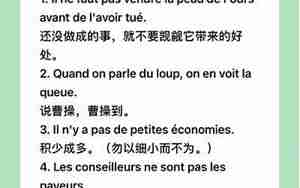
本文目录一览:
春节民俗丨正月初五:吃饺子、开集市、大扫除……
在中国,最隆重的节日就是春节,丰富多彩的“年俗”是每一个中国人心目中难以磨灭的记忆。中国人的“年”既神圣又充满欢乐,每一天都有着不同的讲究,每个地方都有独特的习俗。“春节民俗日历”,为您呈现中华民族丰富的春节文化内涵和历史传承,和您一起欢喜过年。
大年初五
今天是大年初五,农历正月初五,也俗称“破五”,过了这一天,民间诸多禁忌皆可破,是一个辟邪除灾、迎福纳祥的节日。
迎财神
前
兔
似
锦
正月初五“迎财神”,有些地区,每到正月初五零时零分,人们为争利市,图吉利,会打开大门和窗户,燃香放爆竹、点烟花,向财神表示欢迎。接过财神,大家还要吃路头酒,往往吃到天亮。
人们以羊头与鲤鱼迎接财神,羊头有“吉祥”之意,鲤鱼的“鱼”与“余”谐音。
喜迎财神 财运亨通
吃饺子
CHINESE NEW YEAR
阖
家
欢
乐
正月初五这天吃饺子,吃饺子承载了新春期盼。在新的一年里,勤勤恳恳便能过上好日子。
开集市
喜
气
洋
洋
所有为过年而关门休息的大小商店,“破五”过后一般都要选择吉日开张营业,通常是选择大年初六作为“开市大吉”的好日子。因此,好多商家会在初五这天做好开市的一切准备。在我国古代广泛流行的正月开市习俗,反映了我国古人普遍希望辞旧迎新,迎接新一年美好生活的愿望。
大扫除
旧时为避免“散财”,除夕夜到正月初四有不可大扫除的习俗,垃圾也只能堆放在门口的拐角处。而到初五这天,家家户户则需要进行彻底大扫除,意为将不好的运气、穷气都赶走。
2023新的一年祝您:
晦气去去去
事业顺顺顺
运道旺旺旺
新年新气象
来源: 北京发布
春节民俗丨正月初五:吃饺子、开集市、大扫除……
在中国,最隆重的节日就是春节,丰富多彩的“年俗”是每一个中国人心目中难以磨灭的记忆。中国人的“年”既神圣又充满欢乐,每一天都有着不同的讲究,每个地方都有独特的习俗。“春节民俗日历”,为您呈现中华民族丰富的春节文化内涵和历史传承,和您一起欢喜过年。
大年初五
今天是大年初五,农历正月初五,也俗称“破五”,过了这一天,民间诸多禁忌皆可破,是一个辟邪除灾、迎福纳祥的节日。
迎财神
前
兔
似
锦
正月初五“迎财神”,有些地区,每到正月初五零时零分,人们为争利市,图吉利,会打开大门和窗户,燃香放爆竹、点烟花,向财神表示欢迎。接过财神,大家还要吃路头酒,往往吃到天亮。
人们以羊头与鲤鱼迎接财神,羊头有“吉祥”之意,鲤鱼的“鱼”与“余”谐音。
喜迎财神 财运亨通
吃饺子
CHINESE NEW YEAR
阖
家
欢
乐
正月初五这天吃饺子,吃饺子承载了新春期盼。在新的一年里,勤勤恳恳便能过上好日子。
开集市
喜
气
洋
洋
所有为过年而关门休息的大小商店,“破五”过后一般都要选择吉日开张营业,通常是选择大年初六作为“开市大吉”的好日子。因此,好多商家会在初五这天做好开市的一切准备。在我国古代广泛流行的正月开市习俗,反映了我国古人普遍希望辞旧迎新,迎接新一年美好生活的愿望。
大扫除
旧时为避免“散财”,除夕夜到正月初四有不可大扫除的习俗,垃圾也只能堆放在门口的拐角处。而到初五这天,家家户户则需要进行彻底大扫除,意为将不好的运气、穷气都赶走。
2023新的一年祝您:
晦气去去去
事业顺顺顺
运道旺旺旺
新年新气象
来源: 北京发布
世界各国的新年传统7:除了放烟花,还有哪些全球风行的习俗?
【往期回顾】
世界各国的新年传统6:各国都有哪些新年祈福的传统习俗?
【本期内容】
SHARED NEW YEAR’S EVE TRADITIONS AROUND THE WORLD
世界各国共享的新年传统
Written by Mary Gabbett
(原文地址:https://greenglobaltravel.com/celebrate-new-year-traditions-around-the-world/)
Translated and edited by Spark Liao
And then there are the New Year’s traditions that are celebrated by people all around the world. These shared customs are part of what makes the New Year one of the planet’s most popular holidays. Here’s a look at some of the many traditions that transcend time zones, borders, and cultures.
此外,还有全世界人民共同庆祝的新年传统,这些共同的习俗使新年成为地球上最受欢迎的节日之一。下面我们就来看看一些超越时区、国界和文化的新年传统。
1. SINGING THE NEW YEAR SONG, “AULD LANG SYNE”
唱响新年歌曲《友谊地久天长》
Singing “Auld Lang Syne” at midnight is done throughout the English-speaking world and beyond. The traditional Scottish folk song was transcribed (not written) by beloved poet Robert Burns in 1783. The literal Auld Land Syne translation is “old long since”, which really means, “days gone by”. After that, it became a common song of celebration - for weddings, graduations, funerals, etc. - throughout Scotland. In the nearly two and a half centuries since, “Auld Lang Syne” has become the most popular New Year's song in the world.
除夕夜吟唱《友谊地久天长》的习俗在英语世界内外都有,这首传统的苏格兰民歌是由深受爱戴的诗人罗伯特·伯恩斯于1783年改写的(不是原创)。“Auld Land Syne”的字面意思是“很久以前”,用来喻指“岁月流逝”。此后,它成为苏格兰各地常见的庆祝歌曲——出现在婚礼、毕业典礼、葬礼等场合。在近两个半世纪以来,《友谊地久天长》已成为世界上最流行的新年歌曲。
The tradition of singing it at midnight on New Year's Eve was popularized by a Canadian band, Guy Lombardo and the Royal Canadians. The band, which came from a part of Ontario settled by Scots, often covered the song, partially to promote one of the sponsors of their radio show, Robert Burns Cigars. In 1928 the band got a chance to do a New Year's Eve show and closed their set with “Auld Lang Syne”. It became the show's closing number for nearly 50 years, the remainder of Lombardo's life.
加拿大乐队盖伊·隆巴多(Guy Lombardo)和加拿大皇家乐队(Royal Canadians)普及了除夕午夜吟唱这首歌曲的传统。这支乐队来自安大略省的一个苏格兰人聚居的地区,经常翻唱这首歌,部分是为了宣传他们的广播节目赞助商之一罗伯特·伯恩斯·雪茄斯。1928年,乐队获得了一次跨年演出的机会,并以《友谊地久天长》结束了他们的演出。在隆巴多乐队近50年的演艺生涯里,它成为了乐队的闭幕曲。
2. NEW YEAR’S RESOLUTIONS
新年决心
People have been making New Year’s resolutions for literally thousands of years, dating back to the ancient times of the Mesopotamians.
几千年来,人们一直在制定新年计划,这可以追溯到美索不达米亚的古文明时代。
The tradition began as part of a 12-day New Year Festival (which was celebrated in March) called Akitu, during which citizens of Babylonia would swear an oath to the sitting king or allegiance to a new one. The Romans did a similar thing, also in March, devoting themselves to the Emperor. In the mid-1700s, the Methodist Church used the New Year to encourage its members to renew their commitments to God.
这一传统开始于一个为期12天的新年节(于3月庆祝),名为Akitu,期间巴比伦尼亚的公民将向在位国王宣誓或效忠新国王。同样在三月,罗马人也做了类似的事情,宣誓效忠皇帝。在18世纪中期,卫理公会利用新年鼓励其成员重申对上帝的承诺。
Nowadays, most resolutions are neither oaths to kingdoms or religious tradition. Instead, they’re generally commitments to make some effort towards self-improvement. Unfortunately, studies show that - while nearly half the US population annually makes resolutions - less than 10% of them are kept.
如今,大多数新年决心既不是对王国的誓言,也不是宗教传统。相反,它们通常是致力于自我提升的承诺。不幸的是,研究表明,尽管近一半的美国人口每年都会做出决定,但只有不到10%的人会遵守。
HERE ARE SOME OF THE TOP NEW YEAR’S RESOLUTIONS:Exercise more / Get in shapeLose weightGet organizedLearn a new skill or hobbyLive life to the fullestSave more money / spend less moneyQuit smokingSpend more time with family and friendsDrink lessEat more at homeFlossLook at cell phone lessReduce stressGet more sleepTravel more以下是一些排行靠前的新年计划:
多锻炼/保持身材减肥更有条理学习新的技能或爱好充实地生活节省更多的钱/花更少的钱戒烟花更多时间陪伴家人和朋友少喝酒多在家吃饭用牙线清洁牙齿少看手机减轻压力更多睡眠更多旅行3. NEW YEAR’S FIREWORKS
新年放烟花
Invented in ancient China, fireworks were originally made from dried bamboo stalks. When thrown in a roaring fire, they would emit loud bangs. These were later filled with gunpowder (which was also a Chinese invention) to enhance the explosive effect. Finally, the bamboo was replaced by paper (another Chinese invention). Around the 12th century, gunpowder and fireworks gradually worked their way over to Europe.
烟花起源于中国古代,最初是用干竹竿制作的。当被扔进熊熊烈火中时,它们会发出巨大的爆炸声。这些竹竿后来被填充了火药(这也是中国的发明),以增强爆炸效果。最后,竹子被纸取代(中国的另一项发明)。大约在12世纪,火药和烟花逐渐传到欧洲。
Since the beginning, fireworks have been used to scare away evil spirits and enemies. Because the holiday is often associated with starting anew, fireworks have long been a part of New Year celebrations, setting up partygoers for a positive year to come. Today, the tradition of setting off fireworks as part of New Year celebrations is pretty much a staple all around the world.
从一开始,烟花就被用来吓跑恶灵和敌人。因为这个节日经常与重新开始联系在一起,所以烟花一直是新年庆祝活动的一部分,为即将到来的积极的一年做好准备。今天,燃放烟花作为新年庆祝活动的一部分的传统在世界各地几乎成了最主要的活动。
4. NEW YEAR’S CHAMPAGNE
新年香槟
Champagne, some people claim, was originally an English invention as opposed to a French one. The Brits developed the technology to bottle carbonated drinks in the late 1500s. Using techniques translated from making cider, they began to make sparkling wines (of which Champagne is one variety). This invention also required creating stronger glass bottles that could withstand the pressure built up inside by the fermented drink.
一些人声称,香槟最初是英国人发明的,不是法国人。英国人在15世纪末开发了瓶装碳酸饮料的技术。他们利用苹果酒酿造技术,开始酿造起泡酒(香槟是其中的一种)。这项发明还需要制造更坚固的玻璃瓶,它们能够承受发酵饮料在内部产生的压力。
Later, Champagne became the popular drink of choice for celebrations by the royal courts of Europe. It eventually became a worldwide phenomenon in the late 1800s, when the price began to drop and producers started marketing the drink to common folks. While commoners couldn’t afford it for their daily table wine, it was affordable enough for special occasions. It became especially popular for New Year’s celebrations because opening the bottle produced a firework-like POP, and the beverage flowed out in a display of abundance.
后来,香槟成为欧洲皇家宫廷庆祝活动的热门饮品。它最终在19世纪末在全球得以普及,当时价格开始下降,生产商开始向普通人推销这种饮料。虽然普通人负担不起它作为日常的餐用酒,但在特殊场合还是买得起的。它在新年庆祝活动中特别受欢迎,因为打开瓶子会产生像烟花一样的爆裂声,而且香槟酒会瞬间大量喷出。
5. NEW YEAR’S KISS
新年之吻
The tradition of sharing a New Year’s Eve kiss at the stroke of midnight has been featured in countless classic movies, from The Godfather II to When Harry Met Sally. The custom is now a part of most modern New Year’s celebrations.
从《教父II》到《当哈利遇见莎莉》,无数经典电影都有在午夜时分分享新年之吻的传统。这一习俗现在是大多数现代新年庆祝活动的一部分。
Amazingly, the practice has been around for millennia, beginning with the Roman festival of Saturnalia. Lots of meaning has been attributed to the kiss over the years. In Roman times, it was more an act of basic debauchery. German and English folklore cited that the first person you encountered in the New Year (and how that encounter went) would set the tone for the rest of the year. Attendees of masked balls in Europe used it as an act of purification after removing their masks. These days, it’s widely believed that failing to share a midnight kiss on New Year’s Eve foretells a year of romantic loneliness.
令人惊讶的是,从罗马的土星节开始,这种习俗已经存在了数千年。多年来,这个新年之吻被赋予了很多寓意。在罗马时代,它更多被视作一种放荡行为。德国和英国的民间传说称,你在新年遇到的第一个人(以及你们是如何相遇的)将为今年余下的日子定下基调。过去在欧洲参加假面舞会的人在摘下面具后,将亲吻作为一种净化心灵的行为。如今,人们普遍认为,在除夕夜未能分享午夜之吻预示着来年将爱无所依。
However (and wherever) you may celebrate the New Year, most people around the world embrace and honor the passage of time with mixtures of reverence and revelry. It’s yet another thing that shows just how similar, yet unique, our planet’s diverse array of cultures are. We value analogous things and celebrate in our own ways. But we all love to share these moments we hold sacred. We should all remember and relish the customs and traditions that unite us this New Year’s. At a moment when division and dissidence seems inevitable, we still have each other.
不管如何庆祝新年,或是在哪里庆祝新年,世界各地的大多数人都怀着敬畏和喜悦的心情,接受并尊重时间的流逝。这也同时表明了我们星球上的各种文化是多么地相似,但又是多么地独特。我们珍视彼此的共通之处,并以自己的方式庆祝。但我们都喜欢分享这些我们认为神圣的时刻。我们都应该记住并享受将我们团结在一起的习俗和传统。在分离和分歧似乎不可避免的时刻,我们仍然拥有彼此。
如何用英文介绍春节,弘扬中国传统文化!
Spring Festival (春节)
春节是什么
What is Spring Festival?
The Spring Festival is the most important festival for the Chinese people and is when all family members get together, just like Christmas in the West. The Spring Festival falls on the 1st day of the 1st lunar month, often one month later than the Gregorian calendar. It originated in the Shang Dynasty (c. 1600 BC-c. 1100 BC) from the people's sacrifice to gods and ancestors at the end of an old year and the beginning of a new one.Strictly speaking, the Spring Festival starts every year in the early days of the 12th lunar month and will last till the mid 1st lunar month of the next year. Of them, the most important days are Spring Festival Eve and the first three days. Most people will have a week off , thus, this time is known as golden week.春节,又叫农历新年,是中国民间最隆重、最热闹的一个节日,是举家欢庆团团圆圆的大好时节,就像西方的圣诞节一样。春季是每年农历正月初一,通常比公历新年要晚一个月。它起源于殷商时期年头岁尾的民间祭祖活动。严格来讲,春节不只是一天的庆祝,而是从农历的12月底到新年的正月十五,不过最重要的几天当属除夕夜和新年头三天。春节是法定假日,大家一般都会放七天假,又叫做黄金周。
春节传统风俗
Spring Festival Traditions
1 Spring Cleaning
大扫除
“Dust”(尘)is homophonic with “chen”(陈)in Chinese, which means old and past. In this way, “sweeping the dust” before the Spring Festival means a thorough cleaning of houses to sweep away bad luck in the past year. Chinese People believe that in order to receive the new luck, you have to swipe the bad luck. All the cleaning has to be done before the end of New Year’s Eve, that’s what Chinese people always called “Ci Jiu Ying Xin”: saying goodbye to the old and welcoming the new.“Dust” 与“尘”是谐音(尘在汉语中的意思是旧的和过去的)。这样,“在春节前扫尘”是指彻底清洁房屋扫除过去闰年的厄运。勤劳勇敢的中国人民相信,只有把旧的坏运气赶走了,才能迎接美好新生活。所有的大扫除必须要在除夕夜之前完成,干干净净整整齐齐迎接新年,就是我们常说的辞旧迎新。
2Paper Cut
贴窗花
After the thoroughly clean up, people will paste paper-cut decorations on the windows and doors. Paper-cuts, usually with auspicious patterns, give a happy and prosperous atmosphere of the Festival and express the good wishes of Chinese people looking forward to a good life. It is common for Chinese to paste the character “fu(福)”, big and small, on walls, doors and doorposts around the houses. “Fu(福)” shows people’s yearning toward a good life. Some people’s yearning toward a good life. Some people even invert the character “Fu(福)” to signify that blessing has arrived because “inverted” is a homonym for “arrive” in Chinese.在大扫除之后,大家会在家中门窗上贴上窗花。通常带有吉祥图案的窗花,传递节日喜庆和执闹的气氛和表达中国人期待幸福生活的美好愿望。除了贴窗花,在墙上,门上和房子周围的门框上巾大小福字是中国人表达对美好生活渴望的普遍习俗。一些人甚至倒贴福字来表示福到了,因为在汉语中“倒”是“到”的谐音。
3Spring Couplet
贴春联
“The Spring Couplet”, also called “couplet” and “a pair of antithetical phrases”, is a special form of literature in China. The Spring Couplet is composed of two antithetical sentences on both sides of the door and a horizontal scroll bearing an inscription, usually an auspicious phrase, above the gate. Whether the family is rich or poor, educated or ignorant, everyone must put on the Spring Couplet to symbolize the hopes for the coming new year.“春联”或“对联”对立在中国是一种特殊的文学形式。春联是由贴在门口两侧两组对仗的句子组成,在门上面的横批通常是一个吉祥的短语。不论是大富大贵还是贫困潦倒,学富五车还是乡野村夫,每家每户都要在新年时门前贴春联,以寄托对新年的美好祝愿。
4Family Reunion Dinner
年夜团圆饭
The Spring Festival is a time for the Chinese to have family reunion, on Chinese New Year’s Eve (Chu Xi), the whole family must sit at the table to eat the New Year’s Supper together. This meal is usually made from scratch with the entire family working together, and this meal is usually the most sumptuous meal of the year. In the New Year’s Supper, it is essential that some dishes contain the family wishes for the New Year.春节是一个合家团圆的日子,在除夕夜,全家都合家团圆一起共享除夕大餐。这顿饭通常是全家总动员,每个人都要参与,也通常是一年之中最丰盛美味的一餐。在年夜饭中,有一些美好象征意义的美食是必备的
年糕,or the New Year’s Cake, is very common in Southern China, it Is made of sticky rice. In Chinese, niangao sounds like “getting higher year by year”. In Chinese people’s mind, the higher you are, the more prosperous your business is.年糕在中文的发音里意味着年年高升。因此中国人总认为,如果一个人地位较高,其财富就越多。
饺子,or the stuffed Dumpling, is a very common Northern Chinese Dish, Chinese dumplings look like silver ingots. Legend has it that the more dumplings you eat during New Year celebration, the more money you can make in the New Year. Ehen making these dumplings, coins and pennies are usually put into selected few, those lucky family members that happen to eat those special dumplings are believed to have special good fortune in the upcoming year.饺子的开关酷似一个元宝,并且在传统观念里认为饺子吃得越多,那么来年钱就挣得越多。在做饺子的时候,人们喜欢在一些饺子里放上硬币,吃到硬币的幸运儿就意味着来年会有特殊的好运。
5Firecrackers
放鞭炮
Lighting Firecrackers used to be one of the most important customs in the Spring Festival celebration. However, concerning the danger and the negative noises that lighting firecrackers may bring, the government has banned this practice in many major cities. But people in small towns and rural areas still hold to this traditional celebration. Right as the clock strike 12 o’ clock midnight of New Year’s Eve, cities and towns are lit up with the glitter from fireworks, and the sound can be deafening.放鞭炮曾是春节庆祝活动中最重要的习俗之一。然而,担心燃放鞭炮可能会带来危险和烦人的噪音,政府已在许多大城市下令禁止燃放鞭炮。但在小城镇和地区的人们仍然坚持这种传统的庆祝活动。除夕夜一旦撞响午夜12点钟,城市和乡镇都被烟花的闪闪光芒映亮,鞭炮声震耳欲聋。
6Red Packet/ Lucky Money
红包/压岁钱
Children love Spring Festival because they can receive red packet! A red packet is simply a red envelope with lucky money in it, which symbolizes luck and wealth. In traditional Chinese cultural, red is considered a lucky color, red packet is believed to ward off evial spirits and to bring good fortune to the receiver. Traditionally, older generations give the red packet to the younger generation. Nowadays, this practice extends to close friends, neighbors, and even some companies give away year- end bonus in the red packets.孩子们最爱过春节,因为春节有红包!红包就是在一个红包的小红包里装上压岁钱,寓意为幸运和财富。在中国传统文化中,红色是幸运色,大家相信红包能帮人赶走霉运, 带来幸福富贵。在过去,都是长辈给晚辈红包,但是现在这个概念已经扩大到朋友之音,有些公司也会把年终奖金放到红包里面发放。
强推!一定要试试用China Daily学英语
China Daily精读计划自上线以来,已有10w+的小伙伴加入!每天20分钟左右的课程,让大家在读新闻的同时,也收获了满满的英语知识点。社会热点、时政新闻、文化体育、经济金融……我们的选题广泛有趣,内容丰富多彩。不少小伙伴直呼:原来读报还能如此简单高效!精读计划的课程内容,均精选自China Daily报纸文章,再经过专业团队制作,一门超实用、超有趣、超便捷的英语新闻精读课程送到了喜欢我们的小伙伴面前。恰逢4·23读书日大促活动,China Daily精读计划上半年好价就在此刻,更有免单大奖等你来领,福利多多,感兴趣的小伙伴快快上车!活动时间:4月23日-4月30日限时领取无门槛立减红包最高可减30元玩小游戏赢取免单大奖 90天季卡活动价149元膨胀红包最高得30元最低119元即可解锁365天年卡活动价369元膨胀红包最高得30元最低339元即可解锁老用户购买,有效期自动叠加,放心入!为什么强烈推荐你精读China Daily学英语?01
国家级英文报刊 选题包罗万象
China Daily作为国家级英文日报,是中国走向世界、世界了解中国的重要窗口,也是不少小伙伴们人生中读到的第一份英语报纸。这里汇集了来自清华、北大、北外、上外、牛津等国内外名校的英语人才,英语写作专业详实,同时每篇稿件都会经过外国专家的润色把关。中国热点全覆盖,国际大事也观察。语言专业地道,话题贴近中国读者。学英语的一个重要目的,就是用英语讲述自己身边发生的事情,而China Daily的很多文章都提供了非常好的学习范例。从文章的结构,到论述的逻辑,再到修辞的运用,都是可以模仿的优秀范文。在这里,你可以读到国内热点话题:可以洞悉对国际时事的报道分析:还能了解到新鲜前沿的科技信息:更能读到中国特色的语言文化美食:特别是一些专有词汇,在阅读的过程中更是能进行快速积累。当下热点:露营经济、新能源汽车、量子计算、虚拟偶像、CP破坏......特色词汇:六稳六保、“十四五”规划、全面建成小康社会、共同富裕、“一带一路”、两会......传统文化:中国茶、传统色、昆曲、烤鸭、京杭大运河......在阅读过程中,你可以学到这些词的权威译法和地道用法。围观《China Daily精读计划》课程页面☟心中有词,考试不慌。让我看看,是谁被四六级考试翻译难住了?比如曾经出现在四六级考试里的铁观音、龙井茶、青海湖、海南......看似简单,下笔茫然。其实这些知识点在咱们的China Daily精读计划里,都精讲过的。简言之,多读China Daily,对考试和英语学习大有裨益。活动时间:4月23日-4月30日限时领取无门槛立减红包最高可减30元玩小游戏赢取免单大奖 90天季卡活动价149元膨胀红包最高得30元最低119元即可解锁365天年卡活动价369元膨胀红包最高得30元最低339元即可解锁02
专业团队 精心打磨
专业的教师团队,具有多年授课经验及丰富文化储备,精心打磨每一节课程,全方位拆解每一篇文章。从选题到大纲到成稿,从录音到剪辑再到最终的课程呈现在大家面前,每句讲解都经过内容研发团队的精雕细琢。不需要从abandon开始背,也不需要干背枯燥的语法。读着感兴趣的话题,跟着老师清晰的讲解,轻松掌握英语知识。语音讲解,梳理文章中的熟词僻义,介绍阅读技巧;整理重点词汇及英语中的俗语和俚语,重难点和语法点一网打尽。特别是老师们还常有彩蛋放送,引经据典信手拈来、一展歌喉不在话下。◆ 当下爆火的《狂飙》剧名出自何处?而它的英文名字又为什么是The Knockout?◆ 世界杯夺冠后,梅西为啥被称为GOAT?◆ 学语言的本质是什么?光靠聊天学外语靠谱吗?◆ 形容景色优美只会用beautiful?不如丰富一下词汇:thrilling、dramatic、stunning、breathtaking、fantastic、fabulous、superb、splendid......每天精读课下面同学们的反馈就是老师们讲课的最佳动力,可以去留言区看一下大家的学习感受。10w+精读小伙伴期待你的加入,共同进步。03
功能完善 高效学习
练听力、背单词、记短语、分析句子结构、打磨翻译、跟读练习发音、模仿写作……英语学习涉及的每一个环节,你都可以在学习China Daily精读计划课程时得到练习。在产品功能方面,China Daily精读计划一直不断完善:一键复制全文、点击查词、音频倍速切换、一键翻译、单词本、记笔记......实现便捷阅读,高效学习。活动时间:4月23日-4月30日限时领取无门槛立减红包最高可减30元玩小游戏赢取免单大奖 90天季卡活动价149元膨胀红包最高得30元最低119元即可解锁365天年卡活动价369元膨胀红包最高得30元最低339元即可解锁✦ ++
买前必读
▌ 加入后,在哪里学习课程?付款后,关注“中国日报学霸课堂”公众号,点击右下角“个人中心—我的精读”。另外,付款后,每天早上会收到课程提醒,督促和陪伴你坚持学下去。▌加入后可以退款吗?本产品支持7天无理由退款,请在“中国日报学霸课堂”后台联系人工客服处理。▌有效期多久?季卡有效期90天,年卡有效期365天。比如:你报名了90天China Daily精读计划,课程在90天内可以一直学习,到期后就不能学习了,相当于买了一张90天的会员卡。推荐大家及时学习,边学边做笔记哦。▌课程更新频率是怎么样的?除周六日及春节假期外,其他时间每天更新。请大家利用周六日的时间,把周内没来得及学习或没有完全掌握的课程,继续巩固哦。▌不更新的时间算在有效期内吗?算的。比如:周一到周五更新,周六日不更新,每周消耗7天有效期。▌可以试听吗?可以。▌什么英语水平适合报名《China Daily精读计划》?词汇2000以上就可以学习,希望大家从基础到精进,每天进步一点,英语水平得到切实提高。关注“中国日报学霸课堂”,后台回复“词汇量”,可以测单词。推广点击,也可解锁China Daily精读计划365天年卡哦!



























